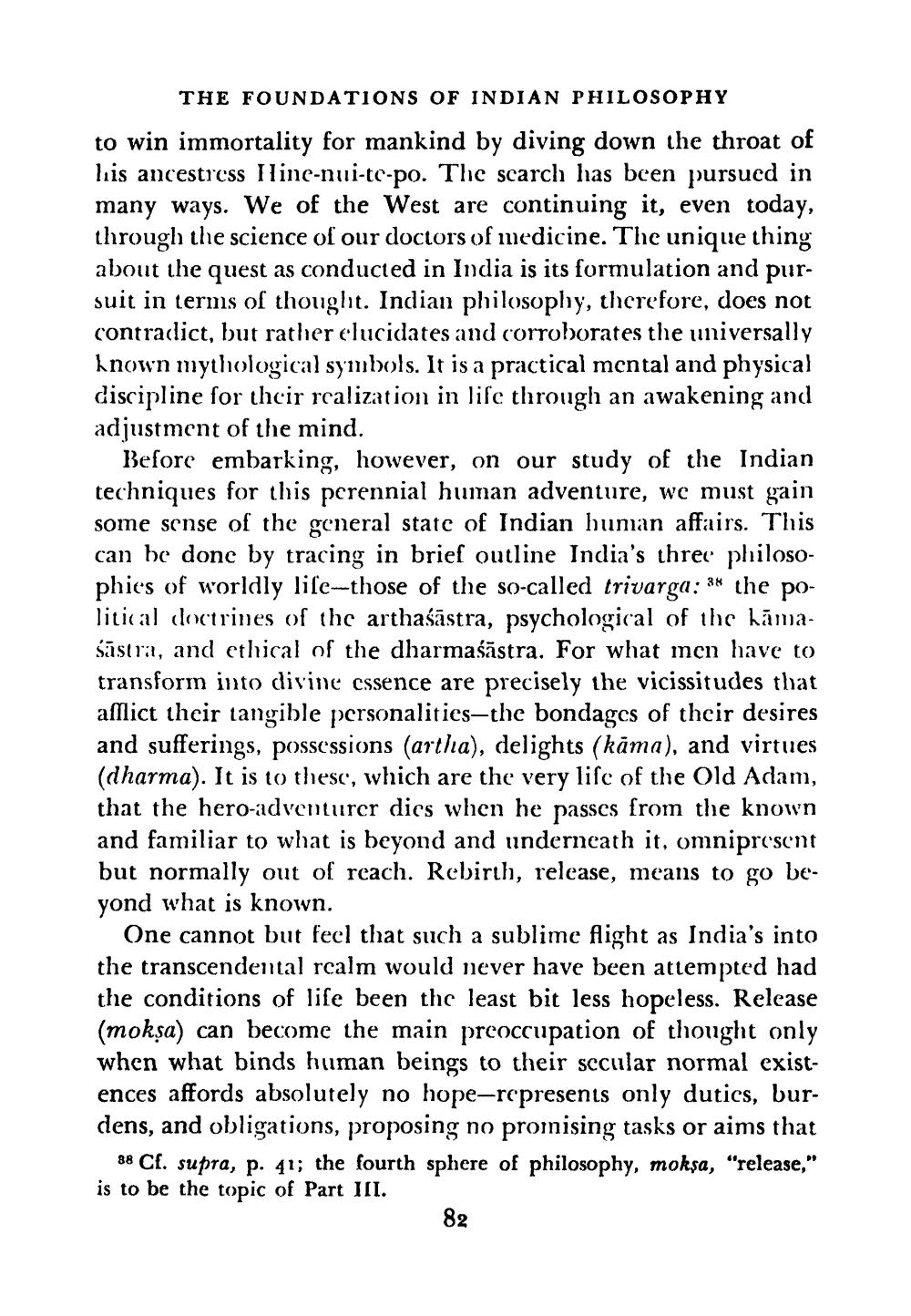________________
THE FOUNDATIONS OF INDIAN PHILOSOPHY
to win immortality for mankind by diving down the throat of his ancestress Hine-nui-te-po. The search has been pursued in many ways. We of the West are continuing it, even today, through the science of our doctors of medicine. The unique thing about the quest as conducted in India is its formulation and pursuit in terms of thought. Indian philosophy, therefore, does not contradict, but rather elucidates and corroborates the universally known mythological symbols. It is a practical mental and physical discipline for their realization in life through an awakening and adjustment of the mind.
Before embarking, however, on our study of the Indian techniques for this perennial human adventure, we must gain some sense of the general state of Indian human affairs. This can be done by tracing in brief outline India's three philosophies of worldly life-those of the so-called trivarga: 3 the political doctrines of the arthaśastra, psychological of the kamaSastra, and ethical of the dharmasastra. For what men have to transform into divine essence are precisely the vicissitudes that afflict their tangible personalities-the bondages of their desires and sufferings, possessions (artha), delights (kāma), and virtues (dharma). It is to these, which are the very life of the Old Adam, that the hero-adventurer dies when he passes from the known and familiar to what is beyond and underneath it, omnipresent but normally out of reach. Rebirth, release, means to go beyond what is known.
One cannot but feel that such a sublime flight as India's into the transcendental realm would never have been attempted had the conditions of life been the least bit less hopeless. Release (mokṣa) can become the main preoccupation of thought only when what binds human beings to their sccular normal existences affords absolutely no hope-represents only duties, burdens, and obligations, proposing no promising tasks or aims that
38 Cf. supra, p. 41; the fourth sphere of philosophy, moksa, "release," is to be the topic of Part III.
82




